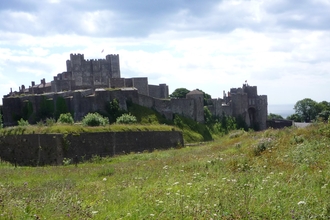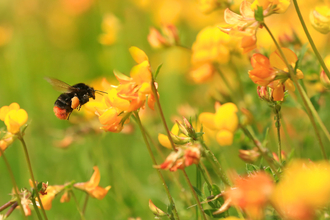Over the course of 2019 and 2020, Kent Wildlife Trust has been working in partnership with English Heritage, with funding from Kent Coastal Communities Revival Fund, on their ‘Dover on the Defensive’ project which aimed to conserve the ancient stonework and historic fortifications in the moat around Dover Castle, as well as restoring the species-rich historic chalk grassland that surrounds the area.
This project would not have been possible without the generous support of volunteers from the local community, who not only donated their time to practical tasks but also had the willingness to learn new skills and knowledge in conservation which, in turn, supported wider efforts to preserve wildlife in the Dover area.

